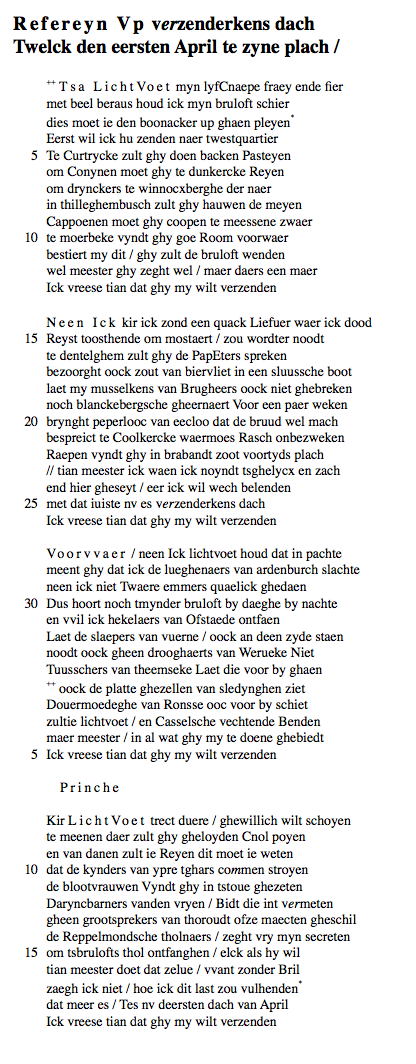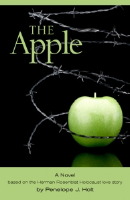Ken Campbell and the Royal Dickens Company —
Ken Campbell recently died at the age of 66.
The Telegraph's obituary describes him as "an actor, writer and director of wilful eccentricity" who worked in experimental theater. However, he was perhaps best known for a hoax he pulled off in 1980, when he sent around letters announcing that the Royal Shakespeare Company was renaming itself the Royal Dickens Company.
I couldn't find a good description of this hoax online (and, unfortunately, I've never gotten around to writing one up... so many hoaxes, so little time). So here's an account of the hoax from Nick Yapp's book
Great Hoaxes of the World:
In 1980, Campbell went to the Royal Shakespeare Company's production of Nicholas Nickleby. A friend in the cast told him that Trevor Nunn, the producer of Nicholas Nickleby, had encouraged the cast at rehearsals to adopt the style of The Ken Campbell Road Show in their approach to parts of the play. Although Campbell sat in the front row, and enjoyed what he saw, the link with his own Road Show escaped him. After the performance, he went backstage where one of the cast had a bowl of fruit in his dressing room. Friends were invited to help themselves from this bowl, but there was a catch in the banana. If anyone touched it, it turned into a penis. Campbell says that it was this that in some way inspired him to create his hoax.
With the help of a couple of friends, Campbell had some headed writing paper printed, a perfect replica of the Royal Shakespeare Company notepaper, save for the replacement of 'Dickens' for 'Shakespeare', and 'RDC' for 'RSC'. He also discovered that Trevor Nunn signed his letters 'Love, Trev'. Campbell wrote dozens of individual letters to actors, writers, directors, producers, designers and composers, as well as to Sir Roy Shaw of the Arts Council. A typical letter read:
Dear X,
As you probably heard there has been a major policy change in our organization.
Nicholas Nickleby has been such a source of real joy to cast, staff and audience that we have decided to turn to Dickens as our main source of inspiration.
So that'll be it for the bard as soon as our present commitments decently permit.
There followed a suggestion for the next production: Sketches by Boz, Bleak House, or The Pickwick Papers. Each letter ended with an individually tailored invitation. For Lindsay Anderson, Campbell signed off with: 'Thinking of you brings The Old Curiosity Shop to mind. What a coup if you could bring Sir Ralph and Sir John together again in a script by David Storey. I feel your cool, intelligent approach is going to be badly needed in these new times.' Max Stafford Clark was offered Barnaby Rudge as a production: 'I find this a compelling piece which could be admirably served by your sparse, clear directorial style -- especially if the whole sweep of the book could be captured with the aid of no more than six chairs.' Norman St John Stevas, the Arts Minister, was told: 'The first production of the RDC is hoped to be Little Dorrit. Any thoughts you have on this will, as always, be treasured.' To accompany the letters and add punch to the campaign, the Aldwych Theatre was covered in RDC posters, in the style of the RSC, giving advance notice of the production of Little Dorrit.
The RSC production of Nicholas Nickleby was spread over two nights, and it was a few nights later that Campbell went to see the second half. He was told that the letter had not gone down well, and that Trevor Nunn had called in the Special Branch. There was no suspicion on Campbell, as Nunn believed it was an inside job. Newspaper reports of the hoax grandly exaggerated the affair, saying that 'thousands of sheets' of RDC notepaper had been printed, and that 'hundreds of letters' had been sent. Trevor Nunn was reported as saying: 'It is deeply embarrassing; a lot of people have written to me refusing, or, even more embarrassing, accepting the offers'.
Some months later, while Campbell was working at the Everyman Theatre, Liverpool, he was phoned by a researcher from the BBC TV programme Newsnight, who accused him of being the RDC hoaxer. Campbell denied it at first, and consulted with his accomplices, who offered him mixed advice. He decided to come clean, and was asked to appear on Newsnight. In the television studio, where he made his confession, he was horrified to see himself, on a monitor, lit like a terrorist, a sinister, dark figure in silhouette. But the affair blew over with no harm done and no recriminations.




 The news from Italy is that Silvio Berlusconi has been engaging in some wild "Bunga Bunga" parties. Or so says a 17-year-old Moroccan belly dancer who attended one of these parties. No one is really sure what a Bunga Bunga party entails, except that Berlusconi apparently learned the practice from Muammar Kaddafi, and it has something to do with sex.
The news from Italy is that Silvio Berlusconi has been engaging in some wild "Bunga Bunga" parties. Or so says a 17-year-old Moroccan belly dancer who attended one of these parties. No one is really sure what a Bunga Bunga party entails, except that Berlusconi apparently learned the practice from Muammar Kaddafi, and it has something to do with sex.  The BBC reports that Welsh-language road signs mysteriously appeared on the Longthorpe Parkway in Cambridgeshire. They suspect it was the work of a practical joker. Presumably a Welsh practical joker.
The BBC reports that Welsh-language road signs mysteriously appeared on the Longthorpe Parkway in Cambridgeshire. They suspect it was the work of a practical joker. Presumably a Welsh practical joker.
 A few months ago it was revealed that Herman Rosenblat had invented his story about how he met his wife while he was imprisoned in the Buchenwald concentration camp, and she was a young girl from the nearby village who would give him apples through the fence. The revelation caused his book deal to be canceled.
A few months ago it was revealed that Herman Rosenblat had invented his story about how he met his wife while he was imprisoned in the Buchenwald concentration camp, and she was a young girl from the nearby village who would give him apples through the fence. The revelation caused his book deal to be canceled.  Hoax Website: The smell of books aroma spray. "Now you can finally enjoy reading e-books without giving up the smell you love so much. With Smell of Books™ you can have the best of both worlds, the convenience of an e-book and the smell of your favorite paper book. Smell of Books™ is compatible with a wide range of e-reading devices and e-book formats and is 100% DRM-compatible. Whether you read your e-books on a Kindle or an iPhone using Stanza, Smell of Books™ will bring back that real book smell you miss so much."
Hoax Website: The smell of books aroma spray. "Now you can finally enjoy reading e-books without giving up the smell you love so much. With Smell of Books™ you can have the best of both worlds, the convenience of an e-book and the smell of your favorite paper book. Smell of Books™ is compatible with a wide range of e-reading devices and e-book formats and is 100% DRM-compatible. Whether you read your e-books on a Kindle or an iPhone using Stanza, Smell of Books™ will bring back that real book smell you miss so much."
 Respected academic journal wants to decorate its cover with elegant classical Chinese poetry. Journal editors -- who can't read Chinese -- don't realize they're actually placing an ad for a brothel on the cover. Embarrassment and retraction of cover follows.
Respected academic journal wants to decorate its cover with elegant classical Chinese poetry. Journal editors -- who can't read Chinese -- don't realize they're actually placing an ad for a brothel on the cover. Embarrassment and retraction of cover follows. It's been the feel-good story in the news during the past few days: 93-year-old Lorna Page was living in a
It's been the feel-good story in the news during the past few days: 93-year-old Lorna Page was living in a 